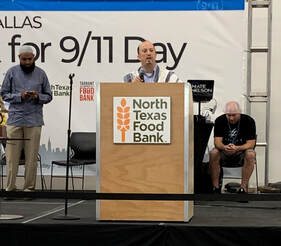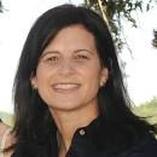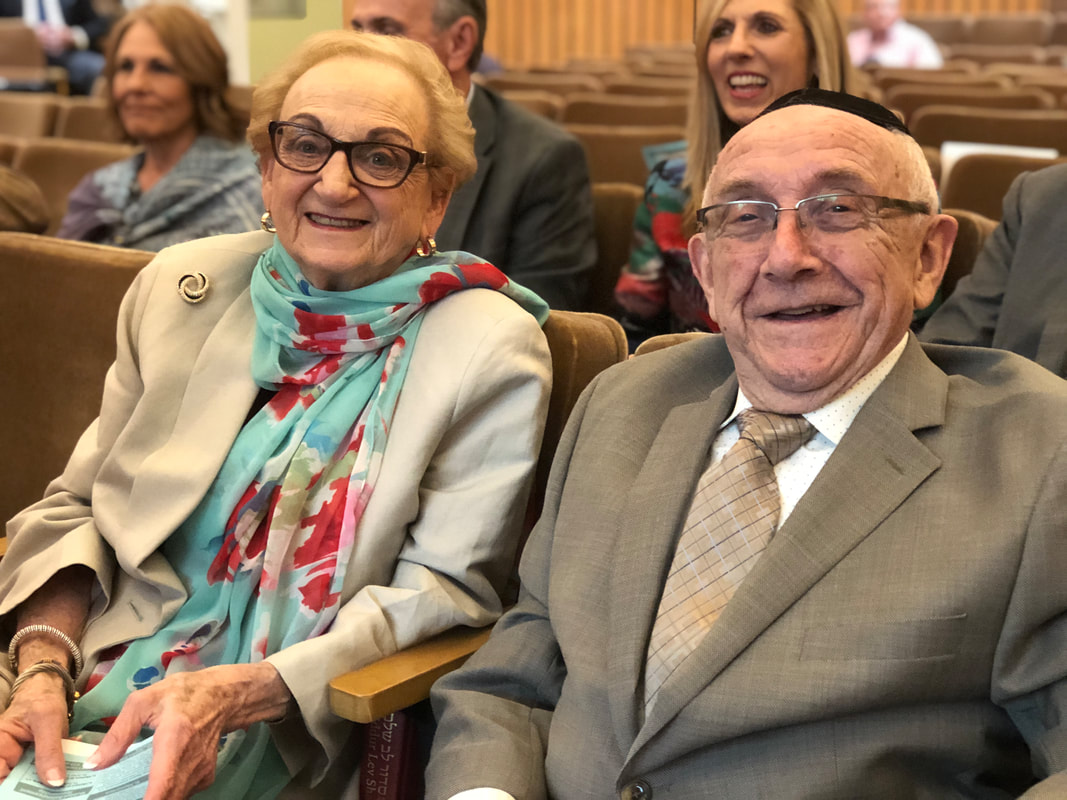|
9/23/2019 hONORING sHEARITH'S hOLOCAUST sURVIVORS AND THE dALLAS Holocaust and Human Rights Museum Board Members and DocentsRead NowWe honor Shearith Israel members who were on the Kindertransport or are survivors of the Holocaust. Their journey and their lives are a testament to the resiliency of the Jewish people. We also honor the members of our congregation who graciously volunteer their time at the Dallas Holocaust and Human Rights Museum as Board Members and Docents. As we celebrate the grand re-opening of the museum, we express our gratitude for the many hours of love and hard work these volunteers dedicate to our community.
0 Comments
By Rabbi Shira Wallach
For our third year, Avi Mitzner and I will co-lead ReNew, an alternative approach to the Rosh Hashanah liturgy. It is a soulful, joyful, musical experience with a shortened liturgy, lots of singing, and room for reflection. We sit in the round so that we all feel responsible for the space. I create a new Mahzor supplement each year that augments the text in the Mahzor Lev Shalem. This year, we will organize our service into three main sections. First: the opening. How do we enter the prayer space? What music and words help us feel like we can approach God? How do we feel empowered to lift our voices in song? How do we reclaim and deepen our relationship with God and with one another? Second: the Amidah. This year, we will only do one Amidah, combining elements from both Shacharit and Musaf. Now that we’ve established our relationship with God, what do we say in our private audience? What is in our hearts that is most important to share with God? What regrets do we have from the past year, what hopes do we have for the future? How do the special prayers for Rosh Hashanah speak to us, and how can we speak through them? Third: the Torah and Shofar. Rosh Hashanah forces us to grapple with one of the most challenging stories of our tradition, the Binding of Isaac. How do we continue to find meaning and relevance in this tale? Why do we read it on Rosh Hashanah? What is its connection to the Shofar, and how do we discern the Shofar’s message for us? After we put the Torah away, we will conclude our service with Ein Keloheinu, Aleinu, Mourners’ Kaddish, and Adon Olam. We have charted out each and every moment of the service for maximum beauty and impact, which is why I insist that you try to come on time and stay through until the end. The service is only 10am until 12:30pm, and you’ll get much more out of it if you can experience the entire arc. Avi and I look forward to celebrating the New Year with you! If you have any questions about ReNew, please send me an email at [email protected]. Shana tova! Rabbi Shira Wallach  By Rabbi Ari Sunshine This past Wednesday up at the North Texas Food Bank in Plano, more than 1000 volunteers from all over the area, including a number of folks from our congregation, came to pack up 279,280 meals for those in need as part of the Communities Foundation of Texas’ 18th Annual Freedom Day. This year was the first year that our local Freedom Day was linked into the federally-recognized September 11 National Day of Service and Remembrance and the associated efforts spearheaded by friends Jay Winuk and David Paine and the 501c3 they founded, 9/11 Day. The Dallas Meal Pack was one of eight major hunger-related service projects 9/11 Day organized around the nation this year, including New York, Chicago, St. Louis, San Francisco, Los Angeles, Phoenix, and Atlanta. It was also one of many volunteer service projects that Communities Foundation of Texas organized in the DFW area in observance of the CFT-created “Freedom Day.” Nationally, close to 12,000 volunteers participated in 9/11 Day Meal Pack projects with the goal of packing over 3,000,000 meals for people in need. I was privileged to be invited to share a blessing with the hundreds of assembled volunteers at NTFB before the 12-noon packing shift began. But I was also privileged to share the stage with David Paine, who came in to support our efforts and then was on his way to hop a flight to Phoenix to visit their project as well; with Ruben Martinez, the sixth-grader from El Paso who created the viral #ElPasoChallenge, who has appeared on Good Morning America, CNN and other media to help spread the word and is asking Americans to do 22 good deeds for each of the 22 people killed in the El Paso shooting; and with my colleague Imam Azhar Subedar from the Islamic Association of Collin County, a real mensch and a huge advocate for interfaith collaboration. I was inspired by their presence and the presence of the hundreds of volunteers in the room. As a woman from our ceremony team sang “America, the Beautiful”, I looked around the room and saw people of all different faiths and colors and backgrounds gathered together for this sacred purpose of serving others and honoring the memory of lives tragically cut short and I was moved to tears. This truly was America, the Beautiful. It’s perhaps not a coincidence that today’s parasha, today’s Torah reading, Ki Tetze, ends with three powerful verses about memory. We read these verses today and also on the Shabbat prior to the holiday of Purim every year, known as Shabbat Zachor, the Sabbath of Memory. These verses instruct us to “Remember what Amalek did to you on your journey, after you left Egypt – how, undeterred by fear of God, he surprised you on the march, when you were famished and weary, and cut down all the stragglers in your rear. Therefore, when the Lord your God grants you safety from all your enemies around you, in the land that the Lord your God is giving you as a hereditary portion, you shall blot out the memory of Amalek from under the heavens. Do not forget!” Rather emphatically, the Torah calls on us to remember this arch-enemy of the Jewish people throughout our generations. The evil Haman on Purim is descended from Amalek and whenever his name is mentioned in the Megillah reading we blot it out with the sound of the graggers in fulfillment of the verse. Jews are known for our long-term memory, not only of the attacks and persecutions of our enemies, but also of the gracious acts of God on our behalf. And when God asks us to remember, there is an expectation on God’s part that we will take appropriate action as well in response to our remembrance. When it comes to the events of 9/11, for many of us, these memories are still very painful and traumatic and difficult. Some of us may have lost loved ones, or known victims or their families, or had friends who narrowly escaped being among those individuals. Others have the indelible images of the attacks in our memory banks from the repeated showings on television and elsewhere. But we are now at the point, 18 years later, where close to a generation of people in our country either weren’t alive when this devastation occurred or were only toddlers and thus have no conscious memory of the attacks or the aftermath. I was at Yavneh Academy’s High School Back-to-School Night on Wednesday evening, and when I met my son Jonah’s Hebrew teacher, he told the assembled parents that for class that morning he had not focused on Hebrew, but instead showed the students some clips of video and audio footage from 9/11, including calls from the doomed planes and other similarly emotional testimony of the tragedy. For most of the kids it was the first time they had seen or heard these clips, which is why the teacher felt it was important to take class time out to show them. This is an important reminder that memory quickly becomes history. Some among us are still survivors of the Holocaust, or children or grandchildren of survivors, and some may still remember U.S. national traumas like the bombing of Pearl Harbor, but none of us remembers firsthand the blowing up of the Maine in Havana Harbor near the end of the 19th century, or the defeat of the defenders at the Alamo in the 1830s. But we still as a nation recall these events and others. The cries of “Remember the Alamo” or “Remember the Maine” or “Remember Pearl Harbor” still reverberate in our collective memory as a nation, just as “Never Forget” reverberates in the shadow of the Holocaust almost 75 years later. It is important that we remember the pain and the sorrow, the trauma and the shock and that we express our feelings each year. However, it is also important to remember as well the response of our nation, the heroes, police, firefighters, military service members, doctors, nurses, health care providers, and others who tried to and in some cases succeeded in saving lives, who ministered to the injured and the bereaved, and those who attempted to bring comfort to all who were impacted by these traumatic attacks. I’ll never forget what I experienced at NY Penn Station the Friday after 9/11 when I was heading down from the Jewish Theological Seminary to my student pulpit at Beth El in Baltimore, MD. I saw people all around me and throughout the station begin to rise and applaud and was not sure why they were doing so, until I saw several firefighters in dirty uniforms emerge at the top of an escalator. An entire train station worth of people gave these four firefighters a prolonged standing ovation, which I must say was an incredibly powerful moment. Just a few short years later, would that still have happened? Or more generally, do we express our continued appreciation to our first responders for all they do and what they risk every day to help us and keep us safe? It is important as well to remember how we came together as a nation and how we, for a moment at least, were united as one great family and were embraced by countless strangers around the world who felt our pain and offered their support. No doubt there are real and troubling questions as to what is left of that communal and national unity that was felt 18 years ago, but when I stood on the stage at NTFB on Wednesday I felt an incredible rush of pride in our country and in what we can be and what we can do when we set our minds to it. 18, “Chai”, years after 9/11, we must still treasure the gift and sanctity of life and challenge ourselves regularly to use that gift to leave a lasting impact on the world around us. As I bring these remarks to a close, I’d like to share with you now the brief one-minute blessing I shared with the assembled crowd at NTFB on Wednesday, inspired by a prayer written by my colleague Rabbi Naomi Levy. And then I’ll ask you all to rise and join me in reading A Prayer for Our Country together on p.177 in our Siddur, followed by the singing of America, the Beautiful, on p. 453. There’s a phrase in the Haggadah, the book from which we tell the story of the Exodus at the Passover Seder: מאבל ליום טוב, ומאפלה לאור גדול “From mourning to a day of goodness, from thick darkness to a great light”. We remember the victims of the tragedy on 9/11. We remember those who stood up on 9/11 and gave their lives so that others might live. When all seemed lost, when the world seemed like a dark and heartless place, they restored our faith in people and our trust in God. They taught us hope, and fearlessness, and honor. We will never forget their heroism and their sacrifice. We will teach our children and grandchildren about their courage in the face of danger. We will try with all our might to live up to the example they have set. We will not ignore human suffering, we will not be indifferent to the cries of those who are hungry, or in need, or in pain; we have been changed forever by that fateful day of 9/11. May we who have gathered here today continue to honor the memory of those who perished and move from that day of deep and profound darkness to a day, THIS day, of profound goodness, blessing, and light. AMEN.  By Mandy Golman When I saw the notice that the Shabbat Hour service led by Rabbis Wallach and Roffman was resuming this past week, I was elated. This service is just one hour long on Saturday mornings in Fonberg Family Chapel. Rabbi Roffman and Rabbi Wallach lead us through a series of “spiritual moments,” the same ones that happen in a traditional service, but in a much more focused and intentional way. I grew up in a Reform temple and attended Jewish camp and, truthfully, Jewish camping is where my Jewish connection was established and has really been the link to my spirituality for me. Over the years, I’ve often struggled to find that same connection when I’ve attended services. All that changed when I attended the Shabbat Hour. Being welcomed by Rabbi Wallach on the guitar and Rabbi Roffman on the piano to a melodic Halleluyah was just beautiful. I felt transformed back to my camp days. The service is very informal and participatory. The Rabbis add meaningful and relevant reflections and guidance as we go through the service and songs. Believe it or not, I find myself wishing it would continue when we come to a close. I now mark these services on my calendar and make it a priority to attend. If you would have told me 26 years ago that I would find this spiritual connection at Shearith Israel I would have never believed it, but after this one hour service I leave feeling grounded and renewed and ready for the week ahead. This service will resume after the high holidays. While I know it will not be for everyone (and that’s ok!) if you have struggled at services, grew up in a Jewish camping world, or would just like to try something different, I would encourage you to try it. You will be glad you did! Editor's Note: Thanks to Mandy Golman for sharing this reflection. If you would like to write a blog post about your positive experiences at Shearith Israel, please contact Communications Director, Julie Carpenter at [email protected] |
Details
AuthorsShearith Israel clergy, staff and congregants share Archives
April 2023
Categories
All
|


 RSS Feed
RSS Feed